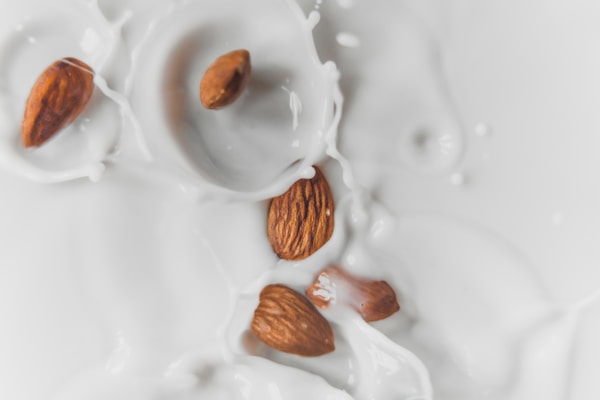There are many reasons why people might want to consider non-dairy milk as an alternative to dairy milk. For some, dairy milk can cause digestive problems like gas, bloating, and constipation. For others, dairy milk may contain high levels of cholesterol and saturated fat, which can contribute to heart disease.
If you’re looking for an alternative to dairy milk, you may want to consider plant-based, non-dairy milk products as a healthier alternative. Products like those from the Strive for Better company offer a variety of milk, from almond to oat milk. Non-dairy milk comes with many health benefits for a variety of people. Keep reading to learn more about the benefits of non-dairy milk.
Vitamins and Minerals

In some instances, non-dairy milk can be a healthier choice over dairy milk because it is fortified with vitamins and minerals. Non-dairy milk is made from plant sources and water. As a result, many products don’t contain the same levels of nutrients found in dairy milk. These nutrients are important for maintaining overall health and preventing certain conditions. As a result, many manufacturers fortify their alternative milk products with additional nutrition.
Many plant-based milks are fortified with nutrients such as calcium, and vitamin D. Fortified non-dairy milk also often contains added vitamins B12 and riboflavin (vitamin B2), which are important for energy production and healthy skin, hair, nails, and eyesight. You can also find products with added protein, fiber, healthy fats, minerals like magnesium and potassium, essential amino acids, and powerful antioxidants. Some milk, like those produced from Strive, has non-animal whey protein, which offers some of the same benefits as cow’s milk without the drawbacks of dairy.
Fat and Cholesterol
While cow’s milk does contain some nutrients that are beneficial, such as vitamin D and calcium, it also contains unhealthy components such as cholesterol and saturated fat. A single cup of whole milk contains more than 24 milligrams of cholesterol, a little more than half that of a cheeseburger from McDonald’s. Consuming high amounts of cholesterol and calories can lead to health problems, especially heart disease. Research suggests that for most people, a moderate intake of cow’s milk does not have an adverse effect on cardiovascular health. However, reducing your intake of fat and cholesterol can have long-term health benefits.
In contrast, non-dairy milk is made from plant sources and is therefore free of cholesterol and saturated fat. They are low in cholesterol and often higher in other nutrients, such as vitamin D, potassium, and magnesium. People who need to limit their cholesterol intake, those who are trying to lose weight, or those who are following a heart-healthy diet should consider fat-free non-dairy forms of milk.
Lactose

Non-dairy milk is perfect for people who are lactose intolerant or have dairy allergies or sensitivities. Lactose intolerance is a condition in which the body cannot break down lactose, a sugar found in milk and other dairy products. This can cause symptoms such as bloating, gas, cramps, and diarrhea. Lactose intolerance affects approximately 25 to 40 percent of adults globally. Tens of millions of Americans are thought to be lactose intolerant.
Dairy allergies are caused by an immune system response to one or more proteins in milk. Symptoms can include hives, itching, swelling of the lips, tongue, or throat, wheezing, and trouble breathing. Sensitivity to dairy is less severe than a true allergy but can still cause uncomfortable symptoms like stomach upset and constipation.
People who are lactose intolerant or have dairy allergies or sensitivities can still enjoy the benefits of non-dairy milk by choosing a good alternative milk product. As discussed, these products often have fortifications of vitamins and minerals, which allow them to offer the same benefits as conventional cow’s milk.
There are many reasons why non-dairy milk is a healthy choice. It is low in calories and fat and can be a good source of protein, calcium, and vitamin D with added fortification. Non-dairy milk is a great alternative to cow’s milk for various reasons.






